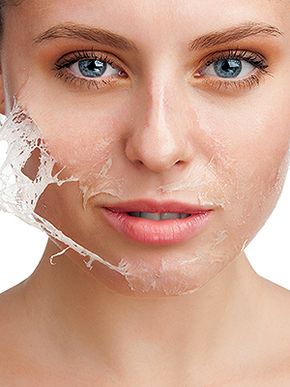"If you are already peeling, moisturize, moisturize, moisturize," says Zeichner. This is especially true if dry skin is to blame or if you're peeling after a chemical or laser treatment. However, if the peeling is the result of sunburn, stay away from heavy moisturizers, which can retain heat, says Wu. Instead, apply cooling, water-based lotions or aloe.
Another great way to soothe sunburned skin is using a milk compress, says Zeichner. Making one at home is a cinch: Simply put chilled whole milk in a bowl with ice cubes. Soak a washcloth in the milk and then apply it to the skin for approximately 10 minutes. "Proteins in the milk soothe the skin while the lactic acid is anti-inflammatory," says Zeichner. If all else fails, an over-the-counter hydrocortisone 1% cream can help reduce inflammation and an aspirin by mouth can cool things down from the inside out.
If the peeling persists, it may be caused by an allergic reaction, infection, or immune system disorder. Consult your doctor if the symptoms continue.

